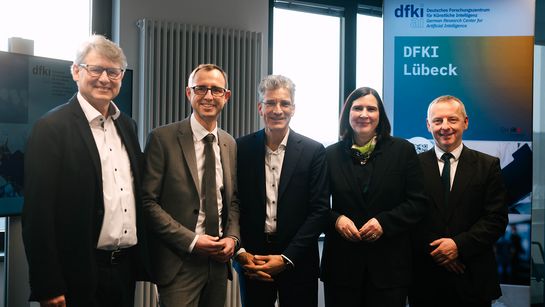
Health & Medicine
In medicine, AI has the potential to diagnose difficult-to-detect diseases earlier and to optimize treatment. In areas where it is superior to human capabilities, it can support and relieve doctors and medical staff: in image processing, pattern recognition, the evaluation of large amounts of medical data or the comparison of symptoms. It helps with practical training and further education and allows intuitive operation of instruments and devices. Intelligent systems also actively support therapy and rehabilitation. In the area of Ambient Assisted Living, their use improves the quality of life of elderly or disadvantaged people.





